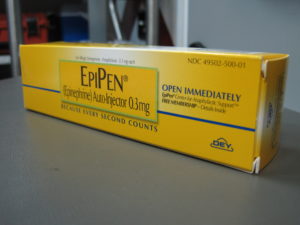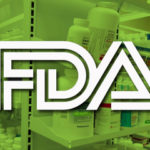September 12th, 2016
EpiPens Should Be Less Expensive
Kashif Shaikh, MD

Kashif Shaikh, MD, is the 2016-17 Chief Resident in Internal Medicine at the University of Central Florida College of Medicine.
This basic lifesaving medication is cheap to produce. It should not be a way to make a billion dollar profit. Should EpiPens be inexpensive and available? I say yes, and here are my reasons. I am not going to blame Shkreli or Bresch for trying to make money; it’s the system of silence and inaction that I blame. Money, power, corruption, and political influence are the key factors that allow big pharma and the individuals who run them to get free publicity and millions of dollars in their pockets.
Remember Shkreli’s arrest? He posted bail of $5 million within 24 hours. Yeah, the same guy who drove the price of Daraprim from $13.50 to $750 a pill had no problem coming up with $5 million in a day. Surprising? No.
Currently, Shkreli’s company, Turing Pharmaceuticals, makes the only FDA-approved pyrimethamine to treat toxoplasmosis. Even though the patent expired long ago, any company who wants to make a generic would need considerable time to go through FDA’s approval process. Silence and inaction on drug reform mean that patients are now charged 50 times more for their medication.
When Bresch’s company, Mylan, first bought Epipen in 2007, the price was around $50 for a single pen. Now, it has climbed to $600 for a pack of two! Epinephrine is not a new drug. It was first isolated in 1901, and it is not under patent. It is on the WHO list of essential medications, and the wholesale cost in the developing world is between US$0.10 and US$0.95 a vial. In Canada, Epipens cost around $102 (American) dollars, because Canada regulates drug prices.
The Epipen autoinjector is patented. But, how much does it cost to make an autoinjector? I mean, it is not made of gold or platinum! Now, Mylan promises a cheaper generic for the U.S. market. This is the recent trend in pharmaceuticals — to raise prices (“temporarily”) with a promise of a future generic. Everyone quietly pays the “temporary” higher price, because “the generic is coming.”However, the FDA takes a long time to approve generic medications and devices. Teva failed to obtain regulatory approval for its epinephrine-delivery device, and Sanofi recalled its autoinjector for incorrect dosage delivery. So Mylan alone sells Epipens and can increase the price without any competition. One might say that this is exploitation of a basic human need to obtain a life-saving medication — a medication that has been produced for almost 100 years.
Drug and device patents allow monopolies in the pharmaceutical industry: An average patent is enforced for 12 to 15 years. Although drug regulation obviously is important for patient safety, drug prices should be regulated, and approvals of generics should be prioritized. Right now, federal law prohibits Medicare from negotiating drug prices. We need legislation that limits the ability of pharmas to manipulate the system.There is no transparency in the drug manufacturing costs, and a recent analysis, reviewed by NEJM Journal Watch, suggests that development costs do not explain the costs of patent drugs (Why Do Prescription Drugs Cost So Much?). In reality, the silence and inaction around drug pricing allows pharmas to charge “whatever the market will bear.” It is unfair to the general public, because medicine is not a choice, but a need. Silence and inaction are unacceptable responses.






With regards to pricing the product, manufacturing costs are irrelevant for the EpiPen brand INJECTABLE PHARMACEUTICALS FOR TREATMENT OF ANAPHYLACTIC REACTIONS TO INSECT STINGS.
Please read and understand the U.S. Constitution, specifically Article I, Section 8, Clause 8:
“To promote the Progress of Science and useful Arts, by securing for limited Times to Authors and Inventors the exclusive Right to their respective Writings and Discoveries;”
Notice this Right is in the Constitution as originally signed. It is not an Amendment. The Founding Fathers understood the importance of copyrights and patents.
Rather than complaining about the price of medical devices and drugs, I suggest that you consider using your time to develop replacement products. For example, you could develop a different injection device for epinephrine.
Oh, you won’t be able to bring your replacement product to market soon. Why is that? Government regulation is one of the answers. And you propose more government regulation.
PS In your article, I found it amusing that you cited 4 pictures from Wikimedia Commons, which were probably used because Wikimedia Commons provides a media file repository of materials with free content licensing. In other words, these pictures were used so that you and the publisher do not infringe copyrights of others.
It is one thing ” to promote the progress of science & useful arts by securing for limited times for authors & inventors the exclusive rights to their respective writings & discoveries” and quite another to use this Right to engage in monopolistic pricing of a life saving drug that is inexpensive, long off patent, & delivered by a relatively inexpensive plastic device, particularly when there is no competing alternative or substitute available. “Market Forces” do not work in such scenario and the patients, many of them children, are subjected to undue life threatening risk.
The problem with EpiPen gets magnified because multiple such devices are needed for a typical young patient – at the day care/school, at home, with grandparents and so on and whole sets of these devices need to be replaced every 12 to 18 months. Non-adherence to this medication is very common because of price leaving the patient highly vulnerable. As an Allergist I would see this daily, frustrated at my helplessness to reduce the impact of the progressively worsening situation.
Effective remedies are of little value if they cannot be afforded or are not accessible. It is incumbent on physicians & organized Medicine to effectively advocate on behalf of their patients to reduce barriers to needed & effective therapies & care.
It’s a complex issue. Good post.
Thank you Kashif for your most timely and important post.
I suffer from perennial allergies and am miserable throughout
the year. Dripping leaking eyes and runny nose.
Reading is for me, is extremely difficult and annoying, having
to wipe my eyes continually. Oral antihistamines and eye drops,
no relief.
I’ve had an extensive work up, for which allergens effect me.
Choosing to try desensitizing shots for potential relief, I’ve had to
wait for Epipens to become available. Now that they are, the cost
is too prohibitive for me.
Still waiting for the process to begin.
Good post. This is a very complex situation, but I would like to point out that whether we like it or not, market forces will control pharmaceutical pricing. A recent study mentioned that it costs an average of $2.6 billion (with a B) to create a new, FDA-approved drug (this ties in the cost of all the drugs that a) failed, b) didnt get approval).
In order for a drug company to make drugs and do research, it must be able to cover its costs. Naturally, they will go after what “problem” will be most profitable. This can either a) serve the most amount of people as there is a large market, or b) serve the people who need it most as there is high demand.
Regulating drug prices puts a knot on what research is a good investment, and will ultimately lead to less innovation. In addition, i believe it would create more monopolies as small drug companies won’t be able to stay afloat, and/or will become irrelevant.
Martin Shkreli of all people said it best. He believes that the government should create generics and sell them at the government’s price, instead of the government regulating prices across the board. This means that the most important drugs that have long been off patent can be distributed for a lower cost. In addition, it doesn’t stop drug companies from researching innovative drugs for the fear of investment loss.